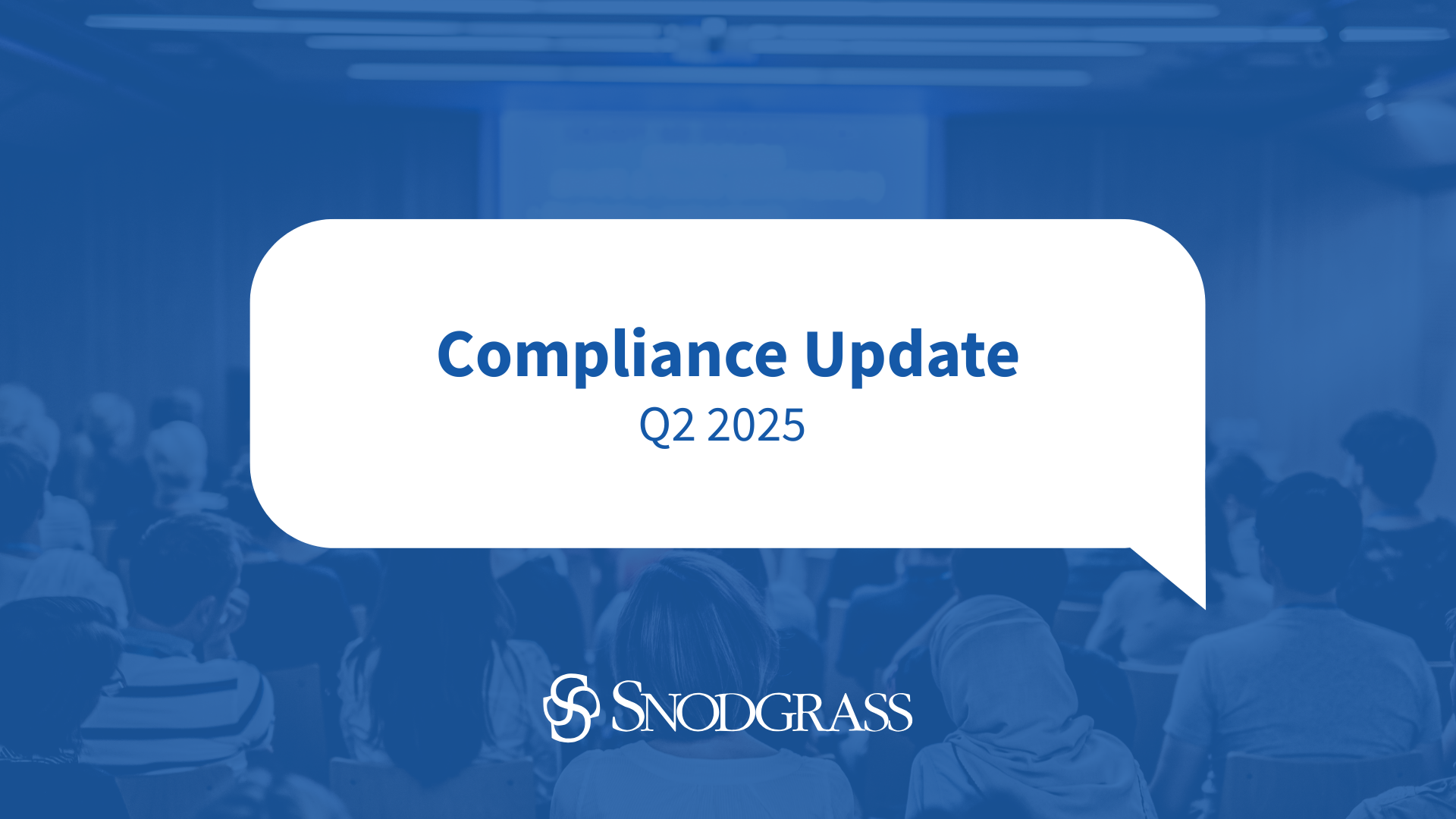President Biden signed into law the American Rescue Plan Act of 2021 (the Act) on March 11, 2021. The Act includes several important tax provisions; the most significant of which are summarized within this Tax Update.
INDIVIDUAL TAXES
Third Round of Recovery Rebates
Similar to the Coronavirus Aid, Relief, and Economic Security Act (CARES Act) and the Consolidated Appropriations Act, 2021, the Act provides for another round of direct stimulus payments to individuals. This time, payments of $1,400 are provided to each eligible adult individual, plus an additional $1,400 for each dependent. The payments are basically credits against 2021 taxes and are fully refundable and paid in advance. The payments phase out based on adjusted gross income (AGI), beginning at $75,000 for single filers, $112,500 for head of household filers, and $150,000 for joint filers. The payments phase out completely for single filers with $80,000 AGI, $120,000 for head of household filers, and $160,000 for joint filers. AGI amounts for the 2020 tax year are used in calculating the phaseouts except in cases where the taxpayer’s 2020 tax return has not yet been filed, in which case 2019 amounts will be used. Payment amounts that taxpayers would be entitled to based on their 2021 tax return but are not received in 2021 will be creditable on the 2021 tax return. As was the case with previous stimulus payments, amounts received based on 2019 or 2020 tax returns that exceed the calculated amounts using 2021 information will not have to be repaid.
Child Tax Credits
The Act provides for changes to the existing child tax credit, but these changes are only applicable to the 2021 tax year. The credit is increased for 2021 to $3,000 per child, or $3,600 for a child under the age of six. The Act also makes the credit fully refundable for 2021 and increases the maximum age of qualifying children to include 17-year-old children. The increase in the credit over the $2,000 pre-Act amount is phased out by $50 for every $1,000 of modified AGI in excess of certain threshold amounts ($150,000 for joint, $112,500 for head of household filers, and $75,000 for single filers). If the excess amount is eliminated, the amount of the credit remains at $2,000 until the pre-Act phaseout thresholds are reached ($400,000 for joint filers and $200,000 for all other filers).
The Department of the Treasury (Treasury) and the Internal Revenue Service (IRS) are to issue advance payments of one-half of the credit amount periodically beginning on July 1, 2021. The remaining credit amount not paid out in advance in 2021 is received when taxpayers file their 2021 tax return. These advance payments are to be based on the taxpayer’s filed 2019 or 2020 tax return. In cases where taxpayers receive advanced payments in excess of what their 2021 tax return information would allow, the Act provides a safe harbor provision protecting taxpayers from having to pay back overpayments of up to $2,000 per child. This safe harbor is available for single taxpayers with modified AGI of $80,000 or less, $120,000 for joint filers, and $100,000 for head of household filers. The Act directs the Treasury and the IRS to create a website for taxpayers to use to opt out of receiving advance payments or to provide information that would impact the amount of the credit paid.
Unemployment
The Act extends the enhanced $300 weekly unemployment relief, which was due to expire in March 2021. This extension runs through early September 2021. The Act also provides for a significant change to the taxability of unemployment benefits received. This change designates the first $10,200 of unemployment benefits received in 2020 as exempt from federal tax for households with up to $150,000 of income. Currently, the IRS is directing taxpayers who have already filed their 2020 tax return without taking this tax-free provision into account to await guidance as to what actions to take.
Earned Income Tax Credit
Under the Act, and for 2021 only, the amount of the earned income tax credit (EITC) is increased for filers without children to $1,502 from $543. The amount at which the credit is maximized is increased to $9,820 from the current $7,100, and the threshold for the phaseout of the credit is increased for non-joint filers to $11,610 from $8,880. The minimum age for childless taxpayers claiming the EITC is reduced from 25 to 19, except in the case of full-time students. Under the Act, taxpayers can substitute their 2019 earned income for 2021 earned income when claiming the EITC on 2021 tax returns if 2021 earned income was less than 2019 earned income.
There are also permanent changes made to the EITC. These changes include the elimination of the prohibition against filers claiming the childless EITC solely due to lack of identification requirements. Additionally, a married but separated individual is allowed to claim the EITC as an unmarried person as long as certain requirements relating to children are satisfied. One last permanent change increases the amount of disqualifying investment income for purposes of the EITC to $10,000, adjusted for inflation after 2021.
Dependent Care Assistance
For 2021 only, the child and dependent care credit is increased to 50 percent of qualified expenses, reducing the credit percentage by one point for each $2,000 of AGI in excess of $125,000. The credit percentage is not reduced below 20 percent until AGI reaches $400,000, at which point the reduction of credit percentage continues until reaching zero. The amount of eligible expenses qualifying for the credit is also increased to $8,000 for one individual and $16,000 for two or more individuals. The credit is fully refundable for 2021. Regarding the exclusion of employer-provided dependent care assistance, the amount excluded from taxable income is increased for 2021 to $10,500, or $5,250 for married taxpayers filing separately.
Forgiven Student Loans
The Act provides for changes to the exclusion of forgiven student loan amounts applicable to loans forgiven after 2020 and before 2026. These changes allow for the exclusion to apply to any forgiven student loan debt for any reason and also allow the exclusion to apply to private student loans, as long as there is no required provision of services to the discharged lender.
BUSINESS TAXES
Employee Retention Tax Credit
The Act extends the employee retention tax credit (ERTC) through the end of 2021. The ERTC can now be applied to the hospital insurance (HI) tax, and not just the old-age survivors and disability insurance (OASDI) tax, for periods after June 30, 2021. Also, for periods after June 30, 2021, and before January 1, 2022, a large employer that has experienced a more than 90 percent decline in gross receipts can use the small employer “all employee wages” rule in determining the credit.
Paid Sick and Family Leave Credits
The Act extends the applicable period for the payroll tax credit for employers providing paid sick and family leave to September 30, 2021. The limit on applicable wages for which the credit can be claimed is increased to $12,000 from $10,000, effective after March 31, 2021. The leave for which a credit can be claimed is expanded to include time off to receive a COVID-19 vaccine or to recover for a vaccine-related sickness. The credit is also made applicable to the HI tax and not just the OASDI tax, effective March 31, 2021. Under the Act, effective March 31, 2021, a new ten-day per employee limitation on claiming the credit is made available. For self-employed individuals claiming the credit, the number of days for which the credit can be claimed is increased to 60 days from 50 days under the Act, retroactively effective after December 31, 2020.
MISCELLANEOUS
Retirement Plan Funding
The Act contains several changes to help employers meet funding obligations for pension plans. For multiemployer plans, delays in having to apply changes to funding plans or schedules are provided, as well as extended improvement and rehabilitation periods for plans that entered critical or endangered status in 2020 or 2021. A longer investment loss amortization period is provided for multiemployer plans, effective for plan years ending on or after February 29, 2020.
For single-employer plans, a longer period for amortizing funding shortfalls is provided for plan years beginning after December 31, 2019. Also, for plan years beginning after December 31, 2019, the Act provides for an extension of funding stabilization measures for single-employer plans.
The Act also provides for a freeze, beginning in 2030, to the inflation-adjusted increases to the annual contribution limit to defined contribution plans, the annual defined benefit limit, and the maximum limit on compensation that may be taken into account when determining the limit on contributions and benefits of an employee.
COBRA Coverage Assistance
Premium assistance for COBRA continuation coverage is included in the Act through September 30, 2021. This assistance is provided by reimbursing the employer for unreceived premiums through a credit against HI payroll taxes. The premium reductions are excluded from income, and the Act institutes a penalty on employers failing to provide adequate notice to former employees whose COBRA continuation period has lapsed.
Taxability of COVID-19 Relief
The Act contains a provision that provides that Targeted Economic Injury Disaster Loans (EIDL) and Restaurant Revitalization Grants received form the Small Business Administration will not be subject to federal income tax, and the exclusion from tax will not result in the denial of a deduction, reduction of any tax attribute, or the disallowance of an increase in basis.
If you wish to discuss any of the matters in this update in more detail, please contact Chuck Marston, Rich Pacella, or Danelle Stewart at cmarston@srsnodgrass.com, rpacella@srsnodgrass.com, or dstewart@srsnodgrass.com or 724-934-0344.
Posted 3/18/21



